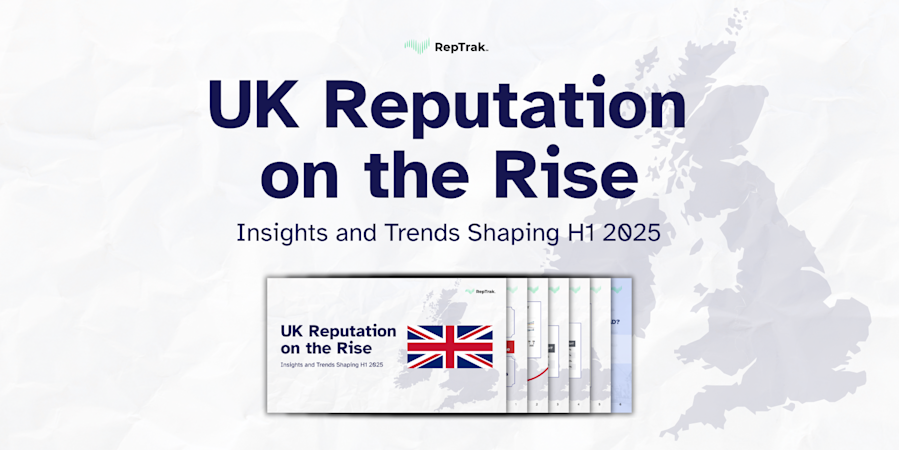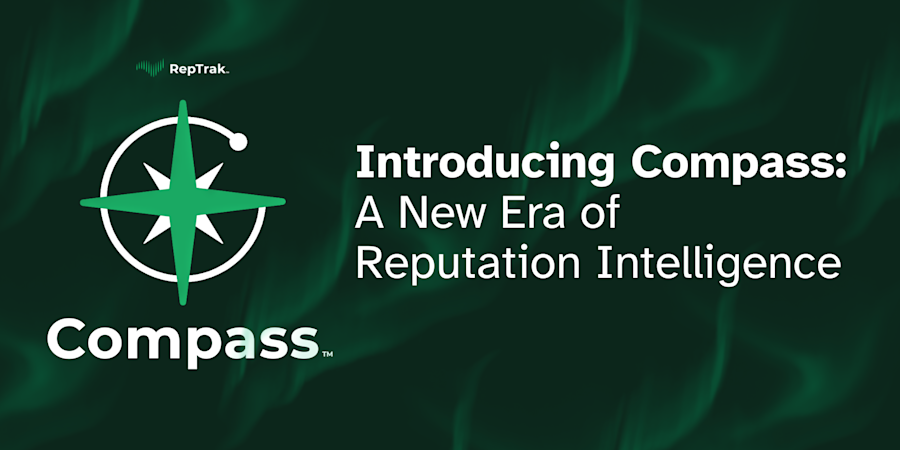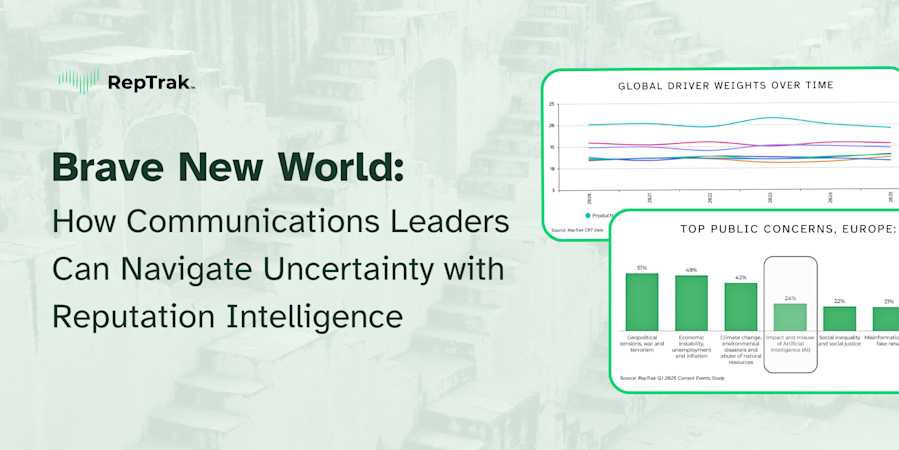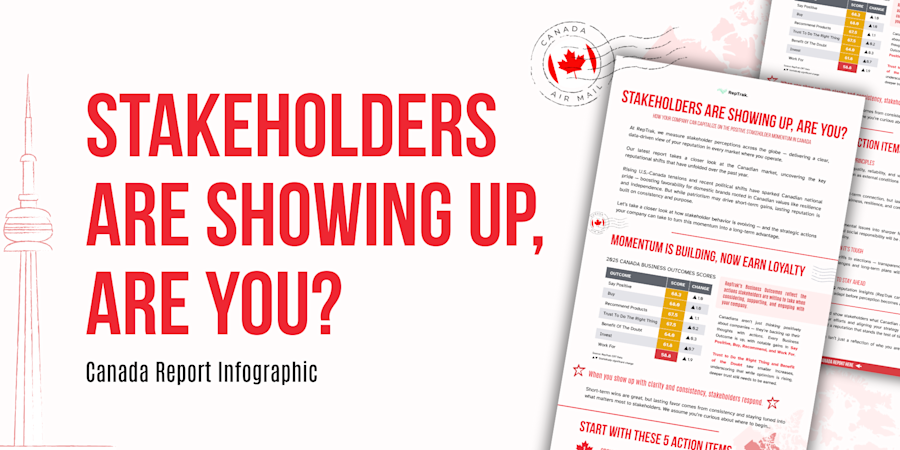Linking higher purpose to business is what matters most in 2020 to global reputation leaders
Press Releases21 Jan, 2020
Boston, Mass., January 21, 2020 -- Fulfilling a higher purpose is considered the most important global trend in reputation that will impact business in 2020, according to a new Reputation Institute study that considered the opinions of more than 200 senior-level reputation leaders representing 25 industries in companies across North America, EMEA, Asia Pacific, and Latin America. While higher purpose is deemed the most important issue to reputation leaders who participated in the study, many of the top 10 reputational trends identified by the global cohort align with the notion of businesses “doing the right thing.” Responsible investing, data privacy, climate change, sustainability/responsible sourcing, and equality/diversity/inclusiveness all made the top 10 list of what matters most to reputation leaders in the study by Reputation Institute, a global technology-driven provider of reputation measurement and management services. “Over the last three years, only higher purpose and data privacy have consistently gained importance in our study of global trends, indicating high levels of reputational risk for companies,” said Reputation Institute CEO Kylie Wright-Ford. “Our study shows that nearly 70% (up 10.5% since 2018) of the informed general public isn’t sure if companies have strong enough data security measures in place, and this shows up in their lack of support for those companies in times of crisis.” Here’s what matters most to the reputation leaders who participated in the study, which was conducted in Q4 2019: Higher purpose – Companies need to deliver on a corporate brand purpose and embrace cultural values, at an emotional level that transcends the products and services they sell. Data protection – Cyber and data breaches are an everyday reality and a growing threat for all major companies. Responsible investing – Weighing the financial, ethical, and environmental concerns in asset allocation and how companies choose to invest. Impact of technology – Technology coupled with the influence of AI, internet of things, big data, and drones, and how this impacts consumers and businesses. Climate change – There are expectations of countries, governments, and businesses to protect and manage their impact on environmental change. Influencers – Stakeholders and individuals who have an extraordinary influence on public opinion ranging from strongly opinionated private individuals, blogger activists, politicians, or subject matter experts. Mistrust of big institutions – The public’s growing mistrust and questioning of the integrity of big institutions such as multinational businesses, government, and the media. Sustainability and responsible sourcing – There is an expectation for companies to source materials and labor responsibly, and minimize the environmental and social impact through their supply chain. CEO activism – CEOs of major companies are increasingly expected to take a public stand on political, social, and values-based issues, and not just be concerned about their business bottom line. Equality, diversity, and inclusiveness – Businesses are judged based on the perceived fairness of labor practices and inclusiveness (gender, ethnicity, race, etc.) of their workplace. Four trends that were in last year’s top 10 but dropped off the 2020 list include trade tariffs, fake news, political polarization and nationalism vs. globalism. Other prominent trends that also didn’t make the 2020 list include immigration, tweet ranting, Gen Z, Millennials, employee activism, and employer of choice. Companies interested in learning more about the 2020 Global Trends in Reputation study, or who want to access 2019 reputation scores should visit https://www.reptrak.com





